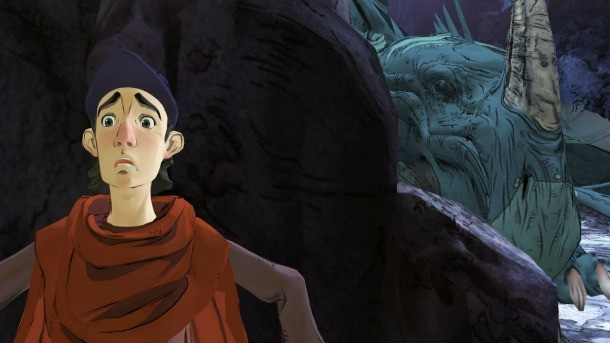Opinion – Episodic Gaming Needs To Change

Episodic video games took a long time to catch on. Developers had been experimenting with the concept for decades, but the advent of digital distribution made it possible for the format to truly take root. We saw the early experiments of episodic pioneers in 2005 and 2006, like Telltale’s Bone and Sam & Max series and Valve’s Half-Life 2 episodes. In the 10 years since, episodic gaming has taken off, but the industry’s current approach to this structure is doing more harm than good.
To be clear, the content of the games isn’t the problem; I love how many of these titles are experimenting with narrative and choice. The real damage is being done by inconsistent and uncommunicated release schedules, making it difficult for these unique and innovative games to put their best attributes forward.
You may point to popular series like The Walking Dead and Tales from the Borderlands and say, “Those are doing well, so everything is fine!” However, just because some high-profile episodic series have done well doesn’t mean that copying their release formula is the only (or best) way for similar games to succeed.
The current approach, with its ambiguous release dates and several months between installments, just isn’t cutting it anymore. I’d like to see one of two things happen. Either developers establish, announce, and adhere to a firm schedule for the pieces of their episodic series, or they stop splitting the game apart and just release a single product.

Let’s talk about the first option, since it’s the easier and more plausible solution. This whole approach to game delivery was lifted from network television’s format; its components are even called “episodes” and “seasons.” On TV, viewers can watch a new episode, then discuss and speculate for a few days, only to return the next week to continue the tale. They can rest assured that they won’t be left languishing too long without answers. This predictability – the light at the end of the tunnel – is what makes this format viable and exciting.
For instance, the new season of HBO’s Game of Thrones premieres on April 24. That’s months away, but I can start anticipating and planning for it right now. Once it starts, I know I’ll get new episodes every week, so I don’t need to have any reservations about jumping in. For comparison, let’s look at Telltale Games’ approach to its own Game of Thrones series. Its first episode released in December 2014, with the follow-ups coming in February, March, May, July, and November. Where’s the rhyme or reason in that? To make matters worse, the release dates were often only announced weeks (or days) in advance, giving players practically no time to prepare or get pumped up.
This isn’t just annoying for people who are in the middle of episodic series; it also discourages new players from trying out a series-in-progress. After all, how eager would you be to watch the premiere of a new TV show if you didn’t even know when (or if) the second episode would air? That’s the current situation in episodic gaming, and yet publishers and developers are asking players to get on board the beginning with no assurance of consistent delivery. When is the next King’s Quest installment coming out? When exactly will Minecraft Story Mode finish? Not only do gamers deserve to know these answers, but that knowledge would also make it easier to get invested in the projects early with less hesitance.

When a new episodic series is announced, we should be given delivery dates for every part of it. I don’t even care if those dates get delayed along the way, so long as the delays are communicated and explained with advance notice. I realize that the realities of publishing make that difficult, but that isn’t our problem as consumers – and it is a poor excuse for the mystery and uncertainty that prevents us from being able to engage with an episodic experience without reservation.
But, even properly scheduled, is the benefit of an episodic release even worth it? That question brings me to my second solution from earlier: ending episodic content altogether.
Episodic gaming has many advantages from a development perspective. Making a single episode is less work than an entire game, and studios don’t need to wait until the final product is complete before they can start seeing a return. Theoretically, it also gives developers the chance to respond to feedback and address complaints to improve future installments, though no episodic series to date has fulfilled that potential in any meaningful way.
That’s all great from the business angle, but the only thing episodic gaming has going for it from the players’ perspective is the opportunity to build up excitement. As already discussed, it’s failing on that front, but that isn’t the only problem. The time between episodes also creates a serious weakness that hurts the pacing of story and character development.

Any narrative is going to have ups and downs, but the episodic structure has players focusing on smaller parts rather than the whole. If there’s one slow-moving installment, players may decide that they don’t care enough to keep going with the next. For example, I recently played Life is Strange, and it was one of my favorite games of 2015. I waited until all five episodes were out before I started, and I loved the way the whole game comes together with a consistent tone and aesthetic.
If I didn’t have the whole game available to me at once, I never would have known how good Life is Strange is; I probably would have stopped after the bottle fetch quest in episode two. That’s the low point of the series, and if I would have had to wait months before episode three, I think that stupid sequence would have been my strongest memory and overtaken the smaller details in my mind. Fortunately, because the next part of the story was just a button press away, I moved past it quickly without dwelling on the dip in quality, and continued as the game got better and better.
I had a similar experience with the first season of The Walking Dead. I fell off after two episodes, but ending up loving the game after I played all five episodes back-to-back. On the flip side, I still haven’t finished The Wolf Among Us (and I’m even a Fables fan). I would have liked to keep playing after I finished the first episode, but episode two wasn’t out and I had lost interest by the time the release date finally rolled around four months later. That's just too much elapsed time; developers can't expect players to remember important events and retain connections to characters when the experience is so fragmented and spaced out.

The point is this: These games are designed to be a cohesive experience, telling a single story once all of the episodes are assembled. Even though individual installments also have arcs, a misstep in a single episode can cause players to drop off – or result in the cancellation of the series entirely. I bet the story of Hidetaka “Swery” Suehiro’s D4: Dark Dreams Don’t Die would have been pretty interesting and cool (given his history with Deadly Premonition), but the first few episodes didn’t take off, so now we don’t know where the larger plot would have gone.
So why even split them up in the first place? If playing the episodes all at once is the ideal way to take in the experience – and if developers can’t stick to a reasonable release schedule to build hype properly – then I can’t really see the purpose of episodic gaming at all. The gamers are shortchanged, and even the games themselves suffer. Don’t get me wrong: I still want to play these games. I just want to play them differently. I want to play them uninterrupted, without the constraints that the format forces on them – like cliffhangers at the end of every episode that are almost instantly and inconsequentially resolved in the next.
A funny thing about this whole situation is that the TV format these episodic games are copying is already moving on. Why do you think Netflix releases every episode of its original content at once? Because it knows that people don’t like their media consumption artificially throttled; people like to binge on good entertainment. Maybe, a few years down the line, someone will see how successful Netflix is and have a brilliant "new" idea: Maybe a game is more fun to play all at once.

Get the Game Informer Print Edition!
Explore your favorite games in premium print format, delivered to your door.
- 10 issues per year
- Only $4.80 per issue
- Full digital magazine archive access
- Since 1991









